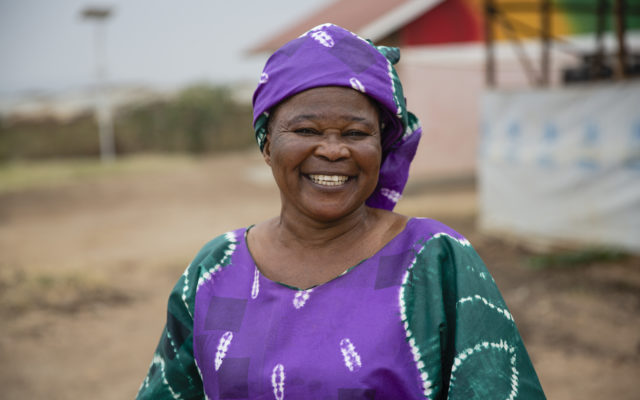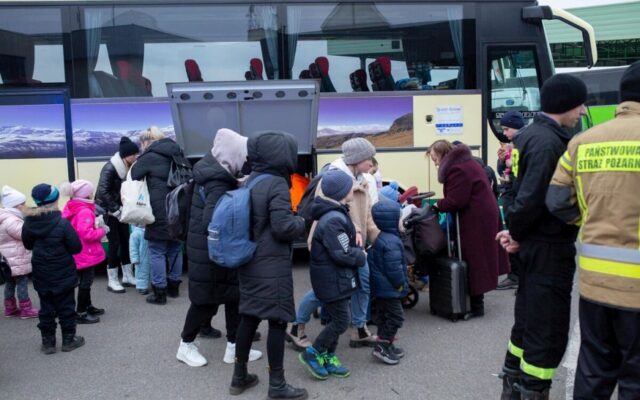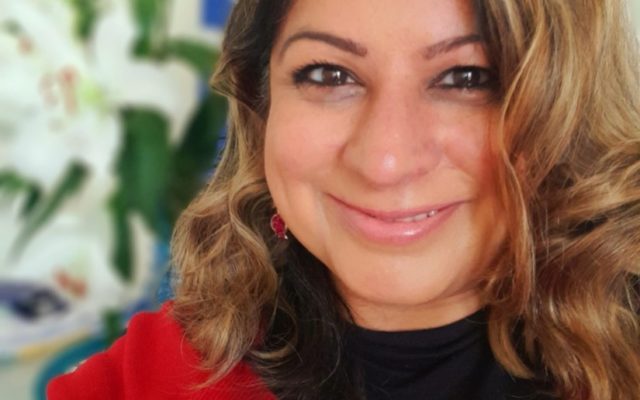16 Days of Activism Heroes
During these 16 Days of Activism, we’re highlighting five people who both support and protect people impacted by gender-based violence.
02.12.22
© UNHCR/Omar Ganchala
Around the world, millions of people are victims of gender-based violence – the physical, sexual, psychological and emotional abuse predominantly experienced by women and girls. Gender-based violence knows no social, economic, or national boundaries.
The 16 Days of Activism against Gender-Based Violence is an annual campaign taking place each year from November 25th, the International Day for the Elimination of Violence against Women, and runs through to International Human Rights Day on December 10th.
Violence against women and girls remains one of the most pervasive human rights violations around the world. Heightened by the covid pandemic, this issue has been increased further by the intersecting crises of climate change, global conflict and economic instability. However, help is available from the many thousands of people working to protect victims and prevent gender-based violence from occurring. We’ve highlighted just five of these human rights champions below.
Saadia – Kenya

© UNHCR/Pauline Omagwa
Saadia Idris is a 27-year-old Sudanese refugee. During the war, she was separated from her family and fled to Kakuma, Kenya alone ten years ago. Saadia is now a community mobiliser who works with UNHCR and other partners to raise awareness on gender-based violence and increase public awareness on GBV referral pathways.
Saadia also mentors young girls by linking them with other girls in her community who have experienced similar circumstances.
“I want to advocate for women who are unable to fight for themselves, and I want my community to recognise that women are just as capable as men. This is reason enough for me not to give up every day “ she stated.
Justin – Democratic Republic of the Congo

© UNHCR/Caroline Irby
UNHCR driver Justin Kisha frequently makes the journey from Bukavu to remote areas of South Kivu, where psychologists working for Panzi Hospital’s Mobile Clinic, funded by UNHCR, visit victims of gender-based violence (GBV) needing urgent care.
The mobile teams include medical staff and psychosocial assistants. They distribute ‘PEP kits’ that contain drugs that can prevent a survivor from becoming pregnant or contracting HIV or other STDs, if taken within 72 hours following a rape. Founded in 1999, the clinic has cared for over 50,000 survivors. The hospital not only treats survivors with physical wounds, but also provides legal, and psycho-social services to its patients.
Kosida – Bangladesh

© UNHCR/Hasib Zuberi
“It is always difficult for women to speak out against men because they depend on men for their living. If women are not independent, they will always be like this.”
Kosida, a 19-year-old Rohingya refugee and volunteer from Myanmar, shares information with women in her community in Kutupalong camp about services available for GBV survivors.
Bélgica – Ecuador

© UNHCR/Omar Ganchala
Bélgica, 60, is a natural–born community leader in Guayaquil currently looking over a community centre where neighbours can organise meetings, training and other initiatives for the benefit of the community, irrespective of nationality.
“Nationality doesn’t make the person, it’s all about attitude. Coexisting we learn a lot about each other, to consider each other’s feelings.”
Bélgica is a single mother of three and is always motivated to help other women, mothers who suffer gender-based violence. “I always tell them it’s better to be alone and focus on our children rather than living with a lousy husband who doesn’t pay alimony or hurts them.”
Françoise

Françoise, originally from the Democratic Republic of the Congo (DRC), lived in Nakivale, a large settlement in southwest Uganda that hosted around 133,000 refugees at the time, from countries such as Somalia, Burundi and her native DRC. A survivor of gender-based violence herself, Francoise volunteered as a counsellor in the Nakivale Refugee Settlement, supporting other women who had experienced the trauma.
A pillar of her community, Francoise later established Kabazana Women’s Centre which provided training for women who were survivors of gender-based violence in skills such as tailoring, cooking, handicrafts, hairdressing and agriculture, helping over 1,000 women.
“I am a refugee myself but I also help my fellow refugee women to improve their lives.”
To read more about Françoise’s story please visit our website.
—
Anyone can be a victim of gender-based violence. If you have experienced, or are currently experiencing gender-based violence support is available.
Gender-based violence is preventable and UNHCR is committed to promoting gender equality and human rights and to protecting refugees and other persons of concern from gender-based violence. Visit the UNHCR website to find out more.




